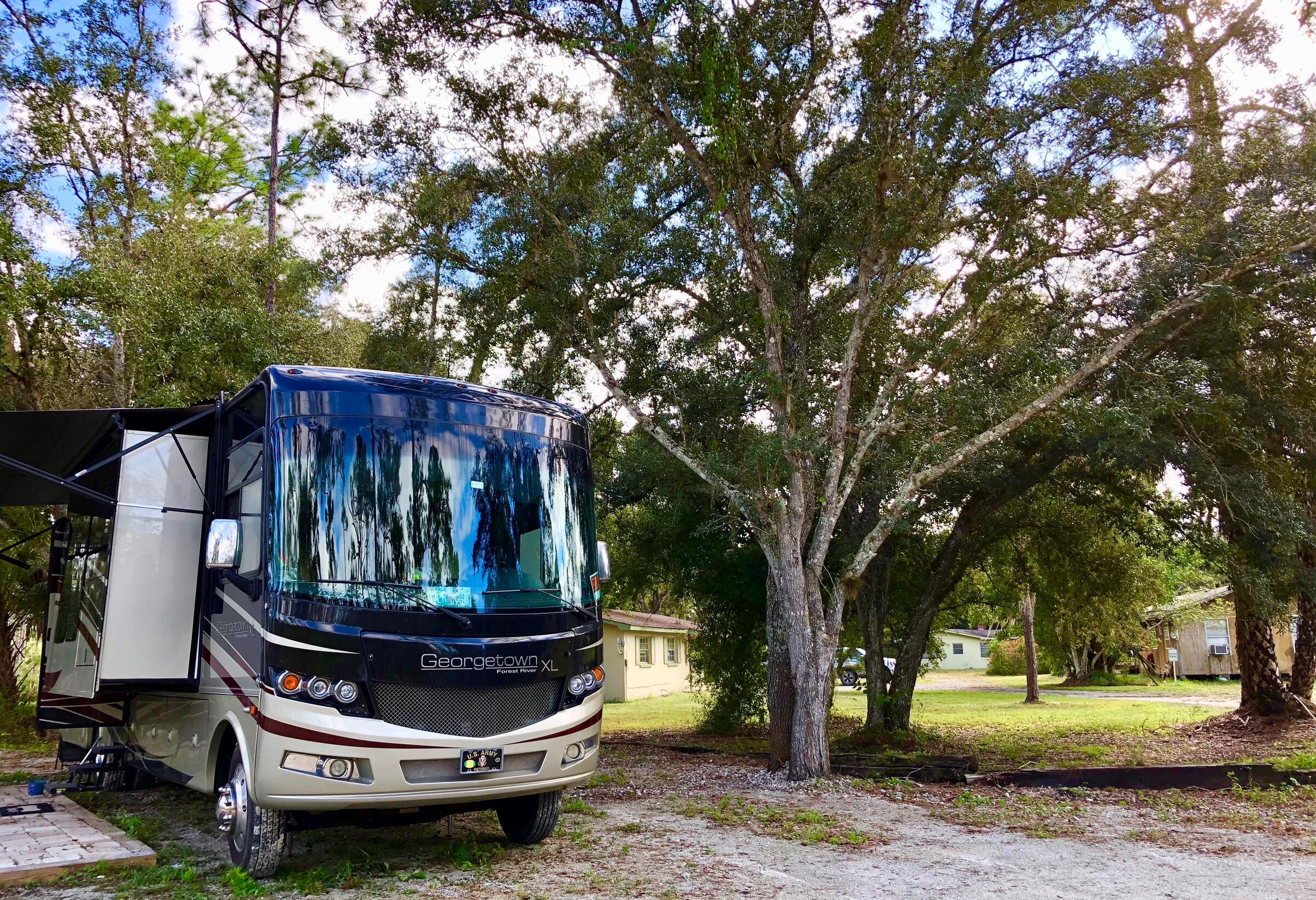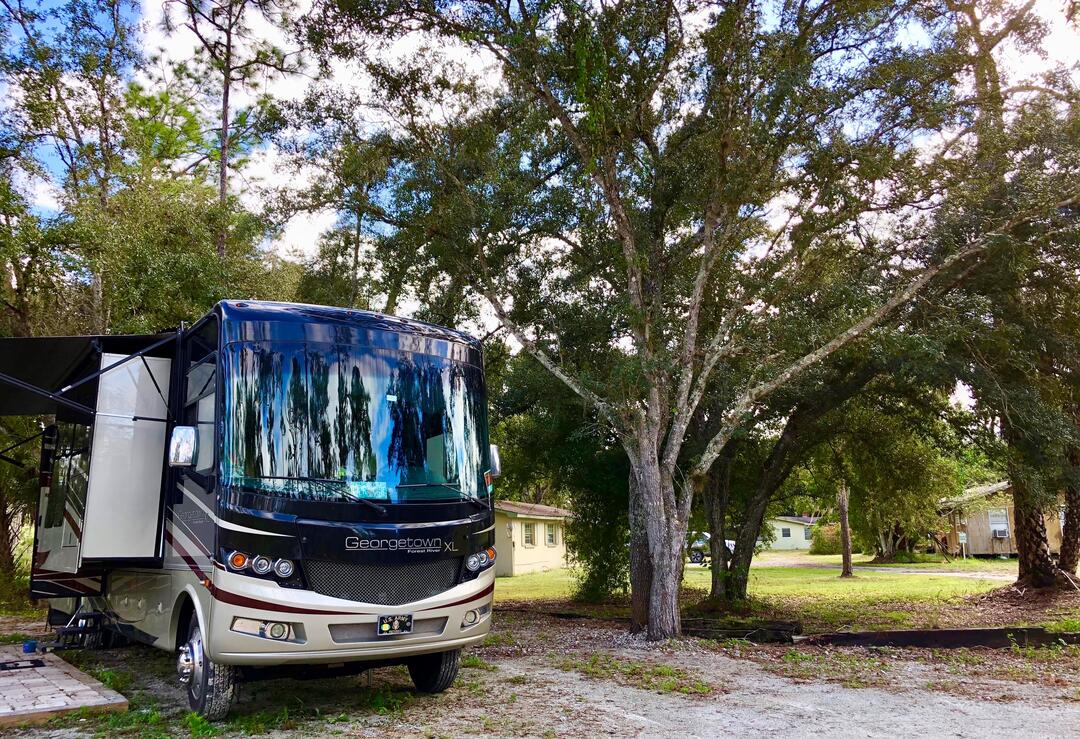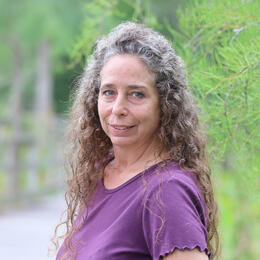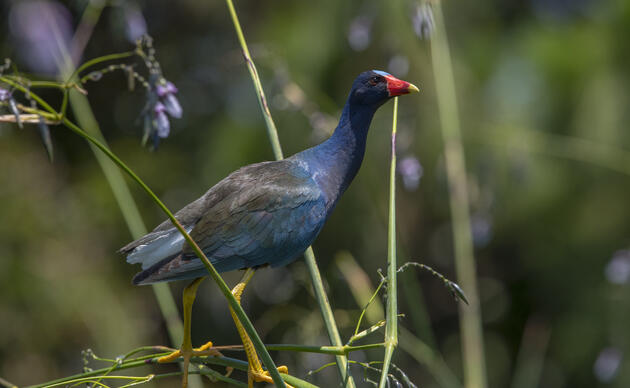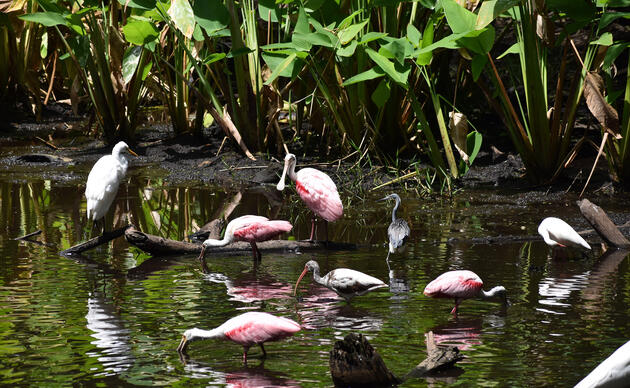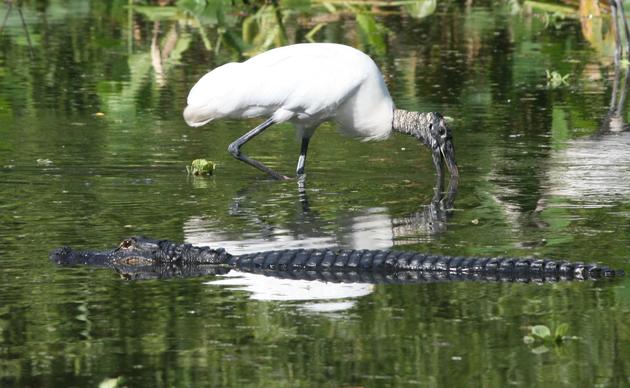Crickets are chirping as warm sunlight fades into the swamp. Stepping off the boardwalk, Chigee Cloninger swings the gate shut and locks the padlock while her partner Pete Murphy scans the parking lot to ensure there have been no new arrivals. As part of the campus host program at Audubon’s Corkscrew Swamp Sanctuary in Naples, Cloninger and Murphy’s job is an easy one, but not one they take lightly.
Twice a year, a handful of part-time campus host positions at Audubon’s Corkscrew Swamp Sanctuary are filled by recreational vehicle (RV) campers who are required to live in their personal RV on one of Audubon’s two RV pads. RV sites are equipped with water, sewer, and electricity hook-ups as well as a private outdoor patio and grill.
“We’ve never stayed in one place this long before, but we loved it,” said Cloninger. “It was a really great way to get to know the place and the people, and share with them what we could,” she continued.
Cloninger and Murphy have traveled the country in their RV, volunteering along the way. This year, as campus hosts from November through March, they experienced the swamp in ways many cannot – sights, sounds, and even smells are different once the sun goes down and no one else is around.
Inspired by similar programs at Florida State Parks and Big Cypress National Preserve, the Sanctuary’s campus host program was developed to help provide staffing support for roles and responsibilities that are increasingly difficult to fill for various reasons, such as the remoteness of the Sanctuary. Campus hosts are paid minimum wage for a few hours per week to perform one job: to ensure all visitors have made it off the boardwalk at the close of business hours, as well as securing the gates and parking lot. Volunteer service opportunities are available to any interested hosts among the conservation and education various program areas within the Sanctuary.
“We first helped with the After-Hours program and liked it so much that we couldn’t wait to help out again,” Cloninger said.
Originally from Lafayette, Louisiana, Cloninger retired from the University of Vermont as a professor and director of The Center on Disability and Community Inclusion. She jumped at the opportunity to volunteer her time with the 2nd and 5th-grade education programs offered at the Sanctuary. She and Murphy also logged hours running the Nature Café, cleaning educational signs, and even painting a shed over Christmas.
According to Corkscrew Swamp Sanctuary board member Tom Maish, the program was designed to be flexible enough to allow hosts to exercise the strong spirit of volunteerism for which the RV community is well known.
“RV campers share our mission and want to share their talents, bringing life skills and experience that are valuable to our staffing needs,” said Maish, who helped make Corkscrew’s campus host program a reality in 2016.
Sanctuary staff members and volunteers view the program as an overwhelming success, and plans are in the works to expand the program in the coming year. Whether Cloninger and Murphy return for another winter is still up in the air, but one thing is for sure: campus hosts are here to stay.

